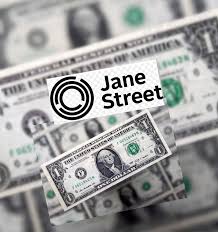
Breaking News
 Trump's attempt to terminate Musk's contracts backfires as review reveals NASA's relianc
Trump's attempt to terminate Musk's contracts backfires as review reveals NASA's relianc
 I drove an American-made car that's faster than a Ferrari... it's almost the perfect vehicle
I drove an American-made car that's faster than a Ferrari... it's almost the perfect vehicle
 Tucker Carlson and Darryl Cooper on the True History of Jeffrey Epstein and Ongoing Cover-Up
Tucker Carlson and Darryl Cooper on the True History of Jeffrey Epstein and Ongoing Cover-Up
 Gabbard To Release More Obama Russiagate Files,...
Gabbard To Release More Obama Russiagate Files,...
Top Tech News
 The Wearables Trap: How the Government Plans to Monitor, Score, and Control You
The Wearables Trap: How the Government Plans to Monitor, Score, and Control You
 The Streetwing: a flying car for true adventure seekers
The Streetwing: a flying car for true adventure seekers
Magic mushrooms may hold the secret to longevity: Psilocybin extends lifespan by 57%...
 Unitree G1 vs Boston Dynamics Atlas vs Optimus Gen 2 Robot– Who Wins?
Unitree G1 vs Boston Dynamics Atlas vs Optimus Gen 2 Robot– Who Wins?
 LFP Battery Fire Safety: What You NEED to Know
LFP Battery Fire Safety: What You NEED to Know
 Final Summer Solar Panel Test: Bifacial Optimization. Save Money w/ These Results!
Final Summer Solar Panel Test: Bifacial Optimization. Save Money w/ These Results!
 MEDICAL MIRACLE IN JAPAN: Paralyzed Man Stands Again After Revolutionary Stem Cell Treatment!
MEDICAL MIRACLE IN JAPAN: Paralyzed Man Stands Again After Revolutionary Stem Cell Treatment!
 Insulator Becomes Conducting Semiconductor And Could Make Superelastic Silicone Solar Panels
Insulator Becomes Conducting Semiconductor And Could Make Superelastic Silicone Solar Panels
 Slate Truck's Under $20,000 Price Tag Just Became A Political Casualty
Slate Truck's Under $20,000 Price Tag Just Became A Political Casualty
 Wisdom Teeth Contain Unique Stem Cell That Can Form Cartilage, Neurons, and Heart Tissue
Wisdom Teeth Contain Unique Stem Cell That Can Form Cartilage, Neurons, and Heart Tissue
Jane Street's $567 Million Pmt to SEBI Exposes Fragility of Wall Street's Secretive Trading

Jane Street's rapid compliance—within days of SEBI's July 3 order banning the secretive quant fund from the Indian market—signals panic within the firm and a desperate bid to shield its global operations. Further scrutiny from other regulators could destabilize its dominant role in the U.S. financial markets
In a stunning move that has rattled Wall Street, Jane Street Group LLC, a secretive U.S.-based proprietary trading giant, deposited Rs 4,843.5 crore (approximately $567 million) into an escrow account on July 11, 2025 to comply with an unprecedented interim order from India's market regulator SEBI. The payment, addressing the largest disgorgement order in SEBI's history, followed allegations of sophisticated index manipulation in India's stock markets. This rapid compliance—within days of SEBI's July 3 order banning Jane Street from India's securities market—signals panic within the firm, driven by fears that India's crackdown could unravel its global operations with more regulators across the world trying to lift the veil of its secretive trading strategies and destabilize its dominant role in U.S. financial markets, where it handles 14 percent of equity ETF trades and 41 percent of fixed-income ETF activity. The firm's opaque leadership structure and secretive operations only heighten concerns about its vulnerability to further regulatory scrutiny.



